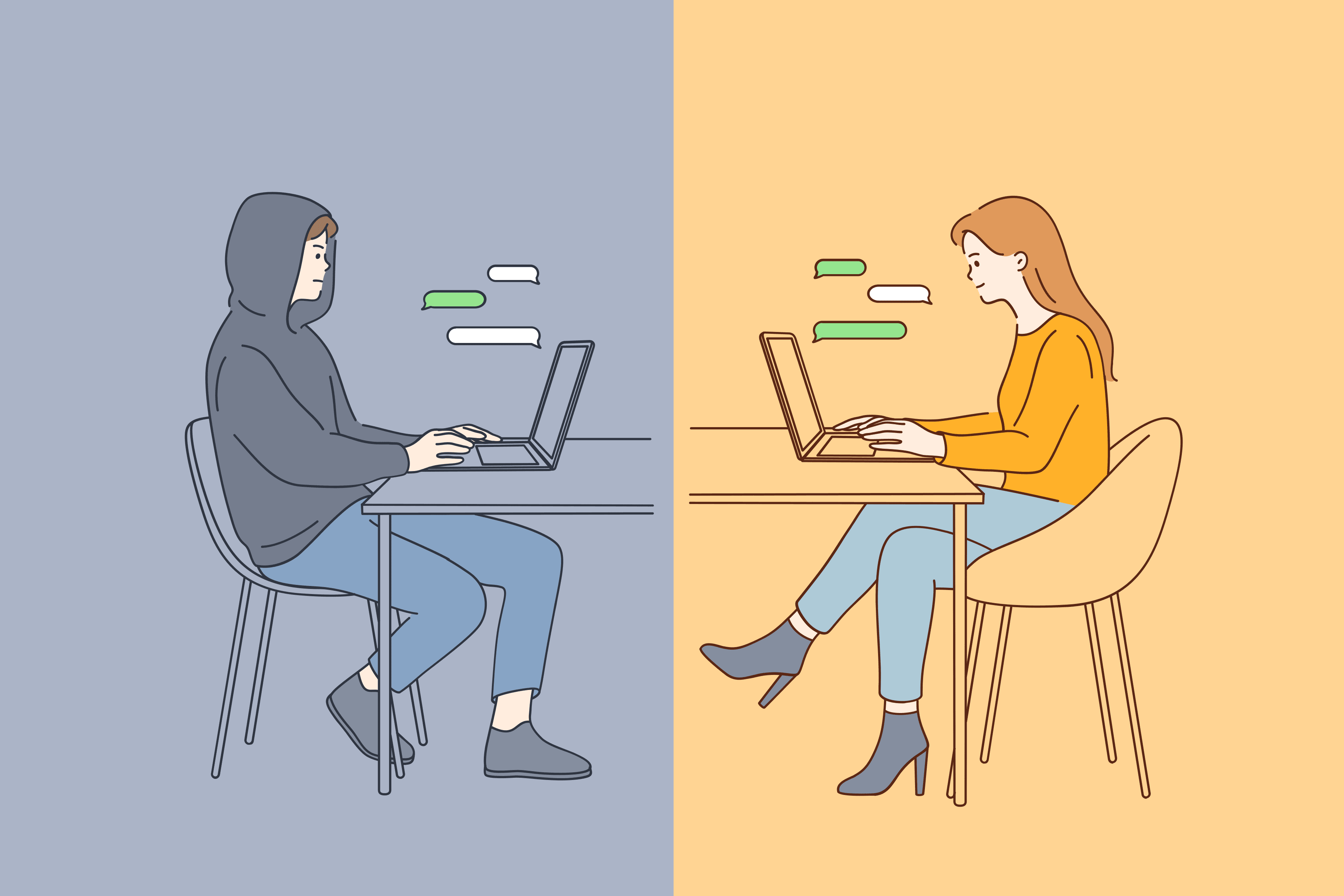
What Is to Be Catfished Online: Threats & How to Prevent

Catfishing is the practice of using data and photographs belonging to other people to fabricate a new identity. In certain instances, a catfisher would assume the full identity of another person — including their picture, birthdate, and location — and pass it off as their own. Individuals involved in catfishing utilize this identity to deceive others into forming relationships with them or transacting business with them online.
What Risk Does Catfishing Present
A major risk of catfishing is when the catfisher uses the victim's personal information to obtain new loans, rack up debt, and then leave the debt unpaid.
Being catfished can also have a serious negative impact on someone's mental health, especially if they have an emotional attachment to the catfisher through a friendship or romantic relationship. It can be very difficult for catfishing victims to trust after their experience, which can have an impact on both personal and professional relationships.
In addition to the potential emotional destruction that someone who has been catfished may experience, they may also experience shame and regret "falling for" and believing in a completely fictitious person. Catfishing can result in monetary loss as well as mental illnesses like depression and anxiety.
Let's say the catfished victim sent explicit pictures to the perpetrator. The victim will feel totally betrayed in that situation and develop paranoia over the possibility of being exposed to revenge porn or being subjected to future sextortion by the catfisher. In addition to anxiety disorders and depression, catfished individuals can suffer from other serious, protracted issues.
Practical Methods to Guard Yourself Against Catfishing
Because of the vast number of people we interact with online every day, avoiding being catfished can be very daunting. As a result, it can be tricky to verify the validity of each identity, but there are ways to avoid or reduce your chances of falling victim to catfishing. You can guard against catfishing in several ways, including:
- Adjusting your privacy settings – You can reduce your risk of getting catfished by setting your social media account's privacy settings to "private," which prevents anyone from seeing the information on your profile. Catfishers frequently search for potential victims to target.
- Being cautious — Always exercise some degree of caution when corresponding with strangers you meet online, especially if you have only recently begun speaking with them or have no solid reason to believe they are who they claim to be.
- Take your time — Be cautious whenever you send other people images or any sexually explicit messages. Once you've sent something, you can't take it back.
- Get Private Data Protection — Protecting your personal information online is another way to protect your online persona. Any confidential information contained in emails, personal messaging apps, social media platforms, or different blogs will be safeguarded by this kind of security package.
- Install Security Suites — Security suites are tools that prevent malicious users and programs from infecting your computer and stealing your information and data. This includes stopping hazardous software that can be stealthily installed while you are online, such as malware, viruses, and phishing scams. To secure your personal information online, make sure to buy and install a reputable security suite.
- Use reverse image search – False profiles and photos abound on social media. If you have a reason to be suspicious of the person you’re chatting to online, think about using a reverse image search to identify fake pictures. Using this tool, you can also make sure a photo is real by comparing it to other pictures and the original version.
Use VPN Unlimited to conceal your online identity
Get it now!
Note: VPN Unlimited is also part of MonoDefense security bundle.
What Can VPNs Do for You
A proactive security strategy is necessary to counter catfishing threats. One such method is using a VPN. By protecting your data, a VPN can help prevent identity theft.
Although it can be challenging to avoid being catfished in the first place, there are many things you can do to avoid falling for the con. Talking to people online requires constant caution. Until they completely earn your trust, assume they are unreliable. Never send money to anyone online if you are unsure of their identity.
Advantages of Using VPN Unlimited
High-grade AES-256 encryption is used by VPN Unlimited to securely protect your important data. Now that no single catfisher is worrying you about your personal information, you can surf the internet without concern. Your online privacy can be protected, which is one of the key advantages of VPN technology.
Your online anonymity may be protected if your IP address and location are concealed. You might choose to stay online using the virtual IP address that a VPN provides. Nobody can watch what you do online, not even your ISP, the government, or any potential catfisher.
VPN Unlimited offers a wide range of benefits that can be found on this page.
As a Final Note
Being catfished can have negative financial, emotional, and informational effects. Use VPN Unlimited to shield yourself from any catfisher that may be lurking online in search of your sensitive data or cash.
Check out what the best VPN has to offer and decide for yourself!
Download VPN Unlimited now